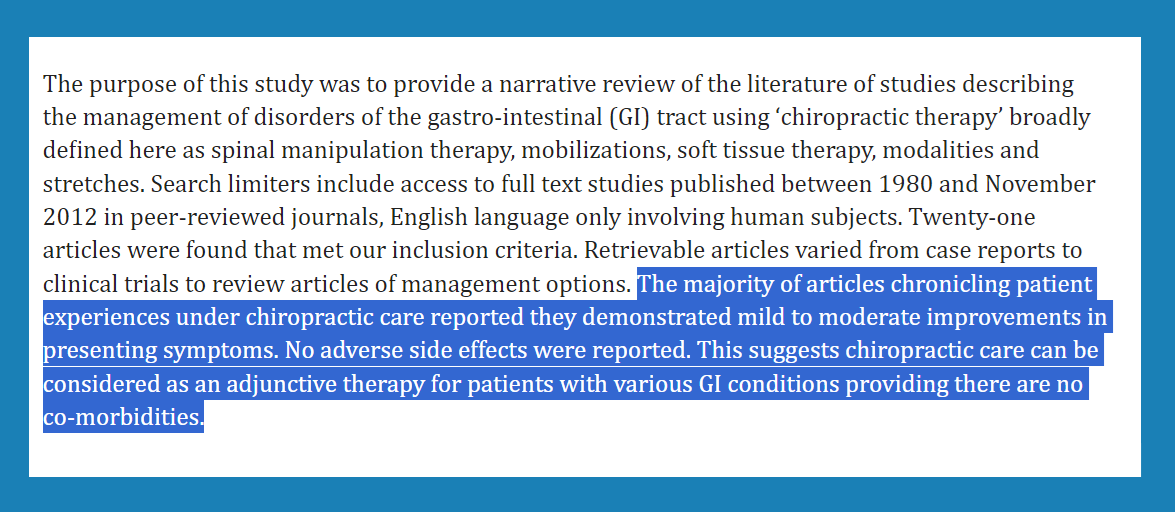Bloating and Irritable Bowel Syndrome (IBS) are two prevalent gastrointestinal issues that affect millions of Americans. While there are various treatment options available, including medication and dietary changes, some individuals seek alternative therapies like chiropractic care to alleviate their symptoms. But can chiropractic adjustments truly offer relief for bloating and IBS? Let’s delve into the facts and find out.
Chiropractic adjustments have been shown to restore proper spinal alignment, which in turn improves nerve function and reduces inflammation. This can help improve the digestive system and alleviate IBS symptoms.
IBS is the most common functional bowel disorder and has a prevalence of 5–25%. Reference.
Understanding The IBS
Bloating is characterized by a feeling of fullness or tightness in the abdomen, often accompanied by gas or discomfort. It can result from various factors, including overeating, digestive disorders, or dietary choices. On the other hand, IBS is a chronic condition that affects the large intestine, causing symptoms such as abdominal pain, cramping, bloating, gas, diarrhea, and constipation. While the exact cause of IBS remains unknown, factors like stress, diet, and abnormal muscle contractions in the intestines may contribute to its development.
Chiropractic Care and Digestive Health
Chiropractic care primarily focuses on the musculoskeletal system, particularly the spine, and its impact on overall health and well-being. While chiropractic adjustments are commonly associated with treating back and neck pain, some proponents suggest that spinal manipulation could also benefit digestive issues like bloating and IBS.
The Theory Behind It
Proponents of chiropractic care for digestive health argue that misalignments in the spine, known as subluxations, can interfere with the nervous system’s ability to communicate effectively with the digestive organs. By realigning the spine through chiropractic adjustments, the theory suggests that nerve function can be restored, potentially improving digestive function and reducing symptoms associated with bloating and IBS.
What the Research Says
While anecdotal evidence and individual testimonials may support the idea that chiropractic care can help with digestive issues, scientific research on this topic is limited and inconclusive. A systematic review published in the Journal of Chiropractic Medicine in 2016 analyzed existing studies on chiropractic care and gastrointestinal disorders. The review concluded that while some studies reported positive outcomes, the overall evidence was insufficient to support or refute the effectiveness of chiropractic interventions for gastrointestinal problems.
It’s essential to note that chiropractic care is not a standalone treatment for digestive issues like bloating and IBS. It should be viewed as a complementary therapy that may be incorporated into a comprehensive treatment plan alongside conventional medical approaches, dietary modifications, stress management techniques, and other complementary therapies.

Reference: https://www.ncbi.nlm.nih.gov/pmc/articles/PMC4486990/
The Importance of Individualized Care


